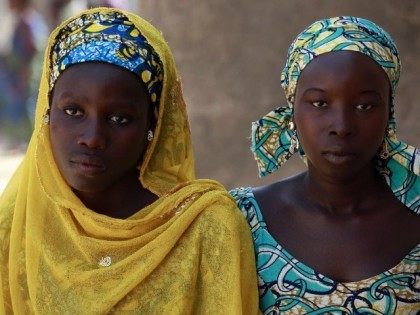Nigeria Marks 10 Years Since Boko Haram Chibok Kidnappings: 91 Girls Still Missing, ‘Little Has Changed’
Sunday marked the tenth anniversary of the Boko Haram kidnapping of nearly 300 mostly Christian girls from their school in Chibok, Nigeria.
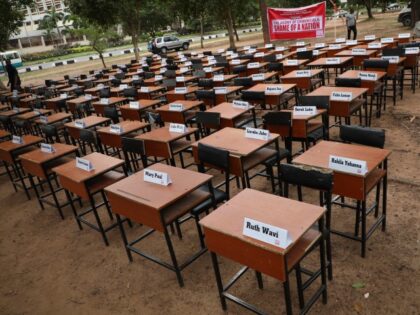
Sunday marked the tenth anniversary of the Boko Haram kidnapping of nearly 300 mostly Christian girls from their school in Chibok, Nigeria.

April 14 marks the ninth anniversary of the tragic abduction of nearly 300 school girls by the Nigerian Islamic terror group Boko Haram, and dozens of girls are still missing to this day.
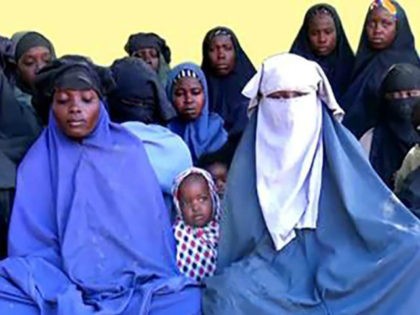
Gunmen identified as “bandits” by Nigerian officials kidnapped over 100 people from four northeastern villages on Sunday, possibly for ransom or use as human shields against Nigerian military operations.
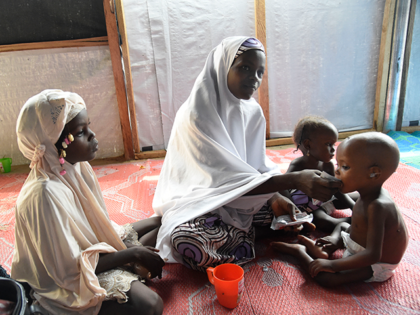
Nigerian Army soldiers said they discovered a woman in Borno state believed to have been kidnapped in 2014 by Boko Haram.
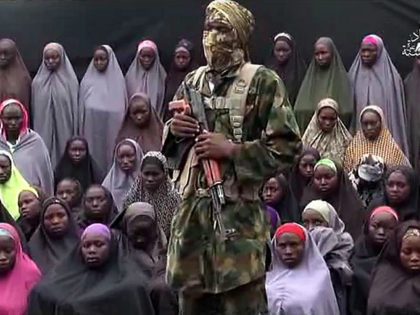
Amnesty International reported Wednesday that 109 women remain unaccounted eight years after the Nigerian jihadist group Boko Haram kidnapped 276 mostly Christian schoolgirls from a state-run secondary school in northeastern Nigeria’s Chibok village.
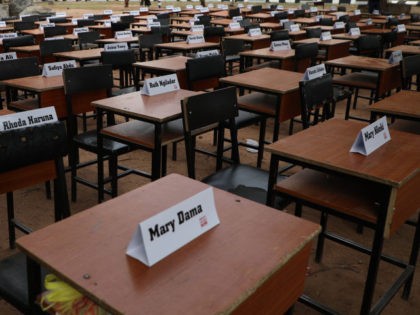
A woman abducted as a schoolgirl in northeastern Nigeria’s Borno State by the terror group Boko Haram in 2014 turned herself over to the Nigerian military in recent days, Borno State Gov. Babagana Zulum said Saturday.

More than 100 schoolgirls abducted by the Nigerian Islamic terror group Boko Haram in April 2014 remain missing, Amnesty International said on Wednesday in a statement commemorating the seventh anniversary of the kidnapping in northeastern Nigeria’s Chibok village.
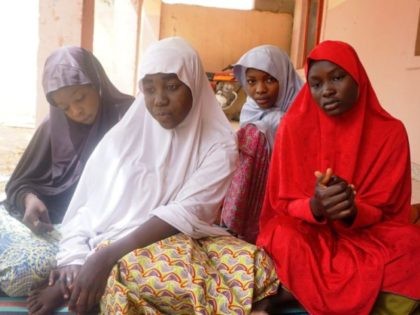
A woman held captive by the Nigerian terror group Boko Haram since 2014 called her father last week claiming she had been “rescued” from her captors by the Nigerian Army, Reuters reported on Monday.

Six years after Boko Haram kidnapped 276 girls from a government secondary school in northeastern Nigeria, the Jihadist terror group is taking advantage of the ongoing Chinese coronavirus pandemic to launch a comeback.

Islamist terror group Boko Haram, an affiliate of the Islamic State, attacked a largely Christian village new Chibok in northeastern Nigeria on Christmas Eve and killed seven people. A teenage girl was also reportedly abducted from the village.
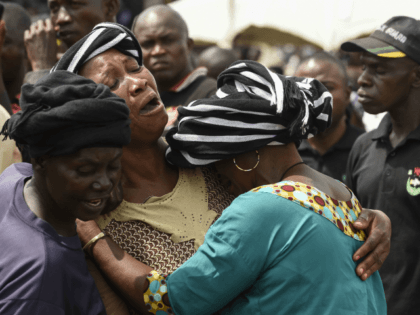
Boko Haram terrorists entered the northeastern Nigerian village of Chibok, Borno, this weekend, burning down homes and looting food to sustain themselves according to locals.
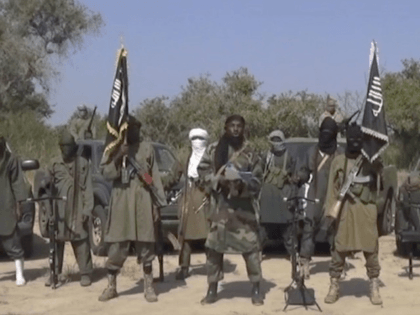
On the fifth anniversary of Boko Haram kidnapping 276 schoolgirls in Nigeria 100 are still missing and many more children are suffering.

Nigerian officials failed to confirm or deny news this week that nearly 100 girls had died in captivity as the nation observed four years since Boko Haram abducted over 200 girls from the northeastern village of Chibok.
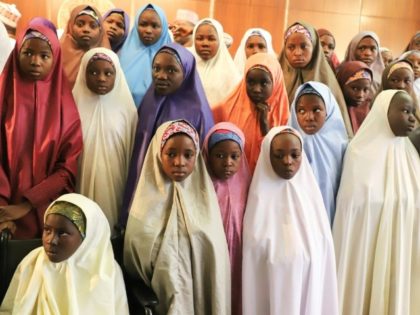
Locals in Dapchi, Nigeria pelted Yobe state Governor Ibrahim Gaidam with rocks after the government admitted it had lied about rescuing dozens of schoolchildren abducted by Boko Haram this week.

A Boko Haram attack on a secondary school in Nigeria’s Yobe state may have resulted in the kidnapping of 94 girls, recalling the mass abduction of nearly 300 by the Islamic State-affiliated terrorists in 2014.

Parents of the girls and young women kidnapped by Islamic State affiliate Boko Haram from Chibok, Nigeria, in 2014 are still waiting to see the 82 released as part of a trade with the terrorist group this weekend. The government claims it is still conducting physical and mental health evaluations, ensuring that none of the girls will pose a danger to society once freed.
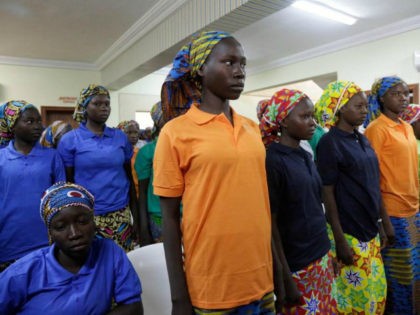
A 10-year-old girl used as suicide bomber detonated an explosive and killed herself in a New Year’s Eve attack in Maiduguri, Nigeria. Although no group or individual has said they are responsible for the attack, using women and little girls is consistent with the tactics of the ISIS-affiliated group Boko Haram.
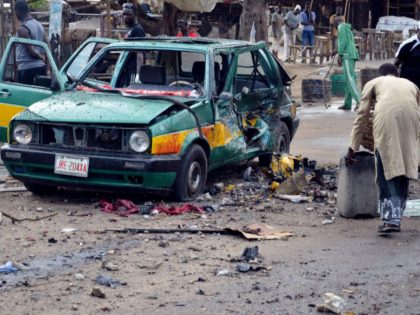
The Islamic State-affiliated terrorist group Boko Haram has released 21 schoolgirls abducted from the northern town of Chibok in 2014, the first time any of the girls kidnapped in that particular episode have been released, rather than independently escaped.
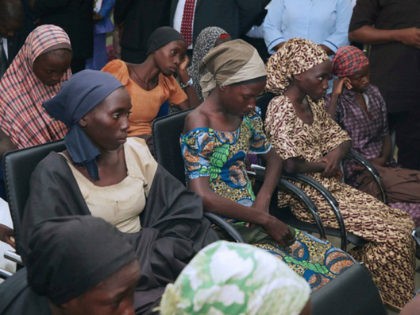
After the latest spate of abductions and killings of clergy by Muslims, Nigerian Church officials are wondering aloud whether priests are becoming an “endangered species” in the African country.
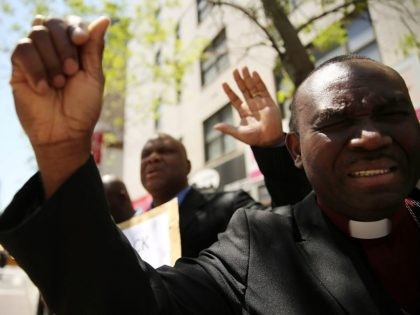
The Nigerian military has announced yet again that Boko Haram leader Abubakar Shekau is “fatally wounded” after a targeted airstrike in the country’s Northeast.

The Boko Haram wing of the Islamic State (ISIS/ISIL) has reportedly executed 10 people and abducted 13 others, including women and children, during a raid on a village near the town of Chibok in northeastern Nigeria’s Borno state, where the African terrorist group kidnapped nearly 276 schoolgirls more than two years ago.

Nigerian terrorist group Boko Haram, an affiliate of the Islamic State, has released a video showing some of the schoolgirls kidnapped from the village of Chibok in April 2014. The terrorists are demanding the release of fighters imprisoned by the Nigerian government in exchange for the girls.
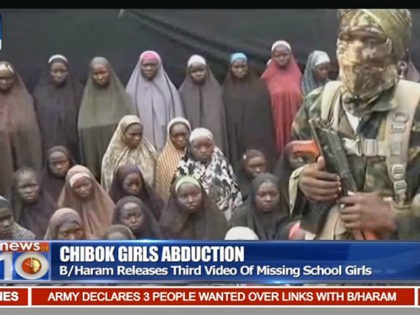
The UK Telegraph fired off a sizzling editorial on Tuesday, accusing recently-elected Nigerian President Muhammadu Buhari of misappropriating British foreign aid money that was earmarked for fighting Boko Haram and using it to persecute his political opponents instead.

At least five parents from Chibok, Nigeria, have received calls from their daughters’ phone numbers recently, two years after Boko Haram kidnapped them and more than 200 others from their secondary school.
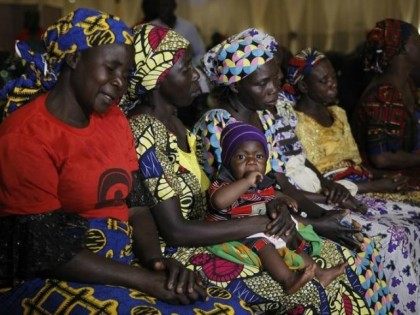
On the two-year anniversary of the mass abduction of over 200 girls by the jihadist group Boko Haram in northeast Nigeria, CNN has published a video showing 15 of the victims, all wearing Islamic garb and describing themselves as “well.”
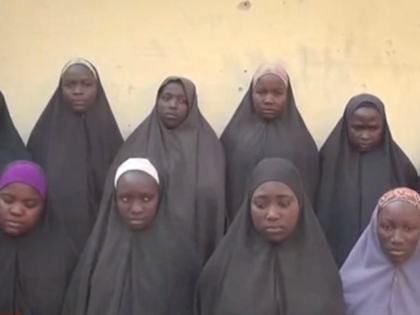
A girl found with bombs strapped to her body who claimed to be one of the nearly 300 girls kidnapped by Boko Haram from Chibok, Nigeria, two years ago was lying, law enforcement officials have confirmed.
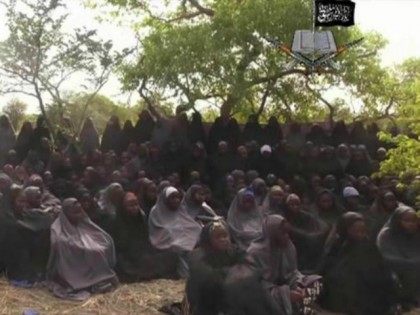
A high-ranking British official has revealed that Western intelligence agents were able to locate dozens of the nearly 300 Nigerian girls kidnapped by Boko Haram in April 2014 months after the abduction, but refused to act to save them, citing the danger of multiple deaths during a rescue attempt.

The Nigerian government has been saying Boko Haram is defeated, but on Wednesday, a triple bomb attack killed 13 and wounded 30 in the town of Chibok, the scene of Boko Haram’s infamous 2014 mass kidnapping of hundreds of schoolgirls, source of the utterly ineffective #BringBackOurGirls hashtag campaign.
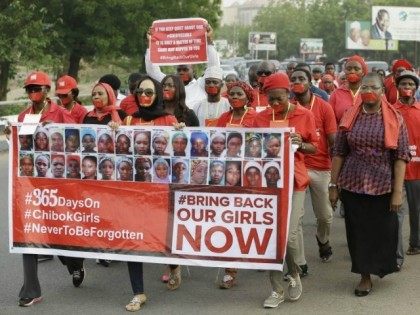
Despite rampant violence and clear signs that Boko Haram, an Islamic State affiliate, is still a threat to west Africa, the Nigerian government has declared the fight against the terror group won, and will begin a new investigation into the abduction of more than 200 girls and young women from a secondary school in northeast Chibok, Borno, in April 2014.
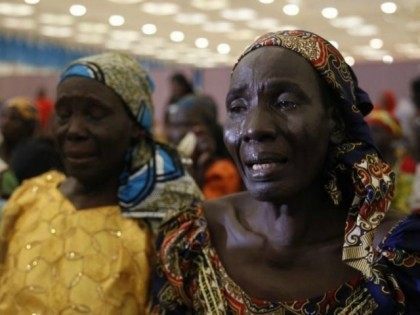
Nigerian President Muhammadu Buhari and other authorities are considering offering Boko Haram prisoners amnesty in exchange for the more than 200 Chibok girls the radical Islamic group kidnapped 16 months ago.
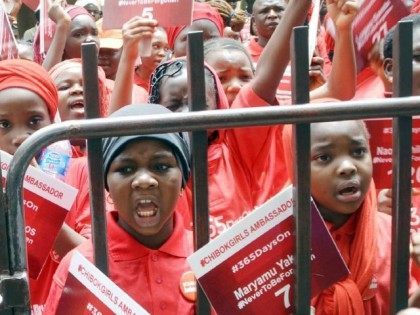
A woman freed from ISIS-affiliated terror group Boko Haram told authorities the militants forced schoolgirls kidnapped from the town of Chibok, Borno, in April 2014 to fight for the radical Islamic group. Her testimony mirrors those of others who told authorities the terrorists brainwashed the young girls to join the group.

Nigerian President Muhammadu Buhari told BBC Hausa in an extensive interview that he believes most of the girls Boko Haram kidnapped from Chibok village in April 2014 are alive, but have been dispersed and married off to Muslims.

An advocacy group in Washington, D.C. is working to raise funds to keep ten Boko Haram escapees in American schools, with two accepted to four-year universities but lacking resources and family to keep them going.
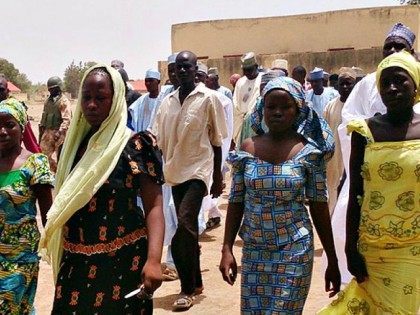
Nigeria’s radical Islamic group Boko Haram announced they are willing to swap over 200 of the Chibok schoolgirls kidnapped in April 2014 for 16 terrorists who are being held by the government.

As the Nigerian government struggles to provide sustenance and treatment to the estimated 700 hostages freed from Boko Haram in early May, women who escaped the throes of the terrorist group during its raid of a girls’ school in Chibok are offering their support and empathy, having once been captives themselves.
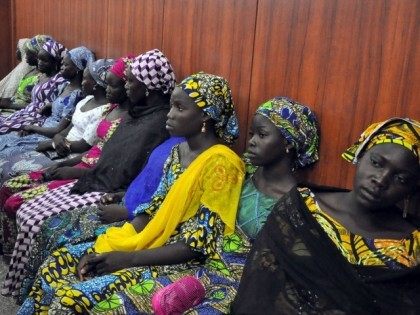
The good news that up to 700 girls and women have been rescued from captivity under the Nigerian terrorist group Boko Haram has been tempered this week by their stories, including those who lived to tell that the terrorists began stoning women and girls to death when they realized their captives were close to being rescued.
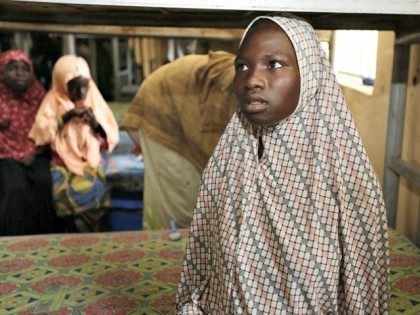
The Nigerian army announced on Tuesday that they had rescued over 200 girls and 93 women from Boko Haram camps in the Sambisa Forest. None of the young girls, though, have been identified as among the hundreds the radical Islamic group kidnapped in April 2014 in Chibok.

On April 14, 2014, the Nigerian terrorist group Boko Haram abducted more than 300 schoolgirls from the village of Chibok, cementing their international reputation as one of the most ruthless and dangerous terror groups in the world. One year later, more than 200 of those girls remain missing, and Nigeria’s president-elect is making no promises to find them.

In January, the world’s single largest terror attack since 9/11 was carried out by Boko Haram, an Islamist terrorist group in northern Nigeria. That incident, which drew only passing notice from the West, saw the slaughter of 2,000 civilians in the border town of Baga. Boko Haram’s oath of allegiance to the Islamic State last weekend raises questions about how this will affect the group. Given Boko Haram’s demonstrable ruthlessness in Baga, a better question would be, why aren’t we aiming to “degrade and destroy” it, too?
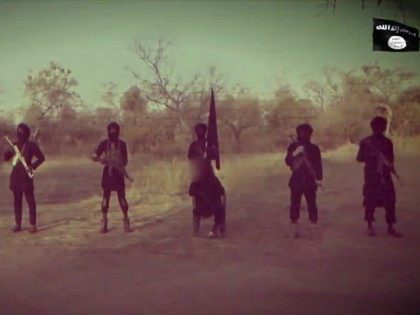
An elder Nigerian woman kidnapped by Boko Haram claims to have been told in captivity where the terrorist group’s leader, Abubakar Shekau, is hiding, and where the group has hidden the more than 200 schoolgirls from Chibok, Borno kidnapped in April 2014.
